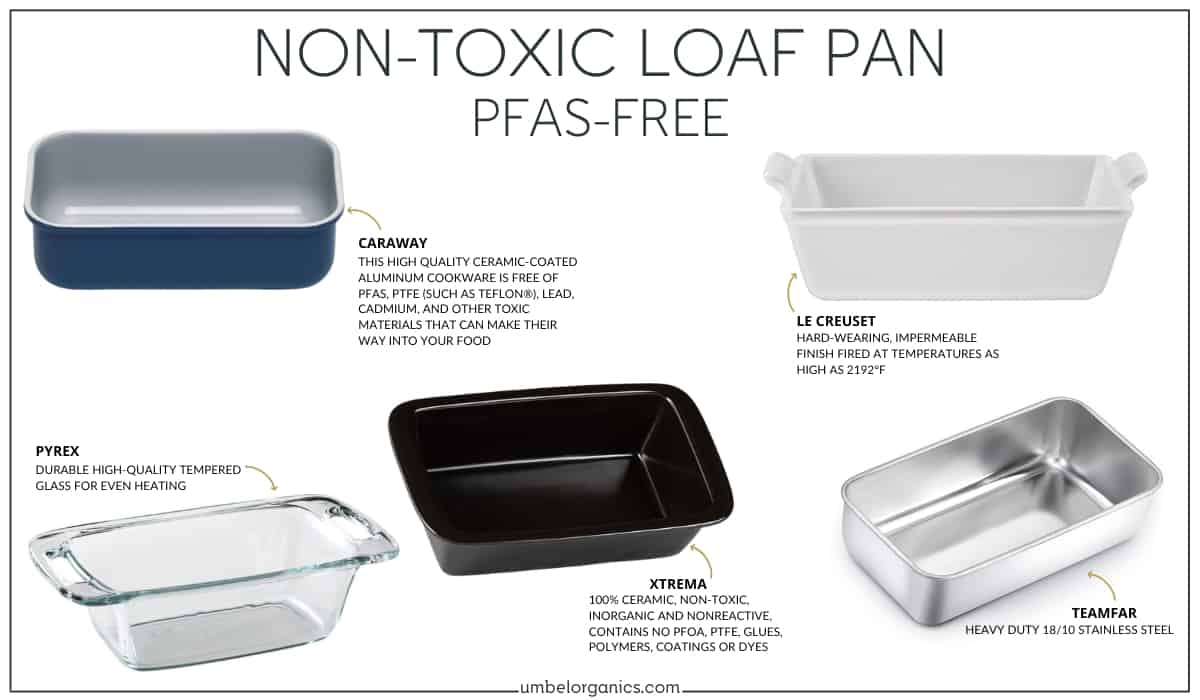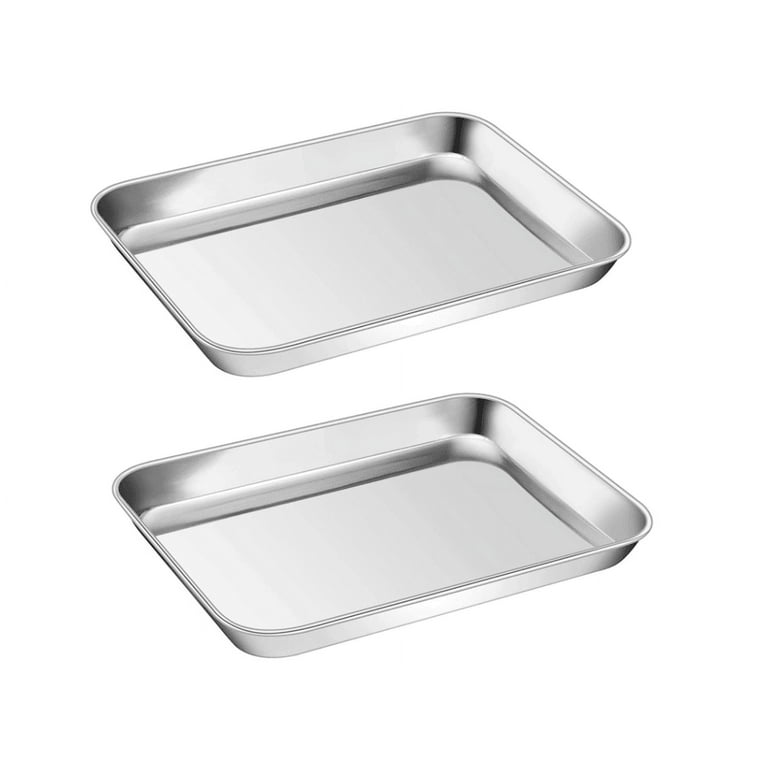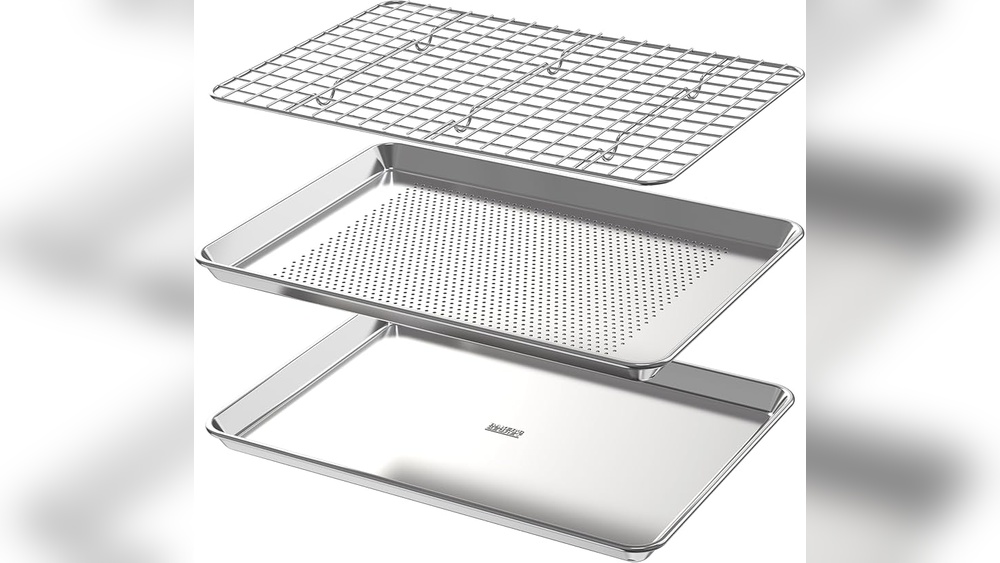Are you worried about the safety of your aluminum baking sheets? You might have heard claims that they could be toxic or harmful to your health.
But what’s the truth behind these concerns? Understanding whether your baking sheets are safe to use is important for protecting yourself and your family. You’ll discover clear facts about aluminum baking sheets, how they interact with food, and what you need to know to keep your kitchen safe.
Keep reading to make confident choices every time you bake.
Aluminum In Cookware
Aluminum is a popular metal used in many kitchen tools. It is light, heats up quickly, and spreads heat evenly. These features make aluminum a common choice for baking sheets and other cookware.
People often wonder if aluminum in cookware is safe. Understanding its uses and properties helps answer this question clearly.
Common Uses Of Aluminum Sheets
Aluminum sheets are widely used for baking sheets and pans. They are also found in roasting trays and cake pans. Many cooks prefer aluminum because it cooks food evenly.
Aluminum baking sheets are easy to clean and affordable. Chefs and home cooks alike rely on aluminum for everyday cooking tasks.
Properties That Affect Safety
Aluminum reacts with acidic foods, which can cause slight metal transfer. This may change the taste or color of the food. To reduce this, many aluminum baking sheets have a non-stick or anodized coating.
Anodized aluminum is harder and does not react with food easily. It also resists scratches and stains better than plain aluminum. Such coatings improve safety and durability.
Using uncoated aluminum with very acidic or salty foods may increase metal exposure. But most normal cooking does not pose health risks.

Credit: mcaseed.com
Health Concerns Linked To Aluminum
Aluminum is a common metal found in many kitchen items, including baking sheets. Some people worry about its safety. They ask if aluminum can harm health. Understanding the health concerns linked to aluminum helps you make safe choices.
Aluminum can enter the body through food, water, or air. The main concern is how much aluminum builds up over time. Small amounts usually do not cause problems. Large amounts or long exposure may lead to health issues.
Potential Risks Of Aluminum Exposure
High levels of aluminum in the body can affect the brain and bones. Some studies suggest it might link to memory loss and brain diseases. People with kidney problems may have trouble removing aluminum. This can cause aluminum to build up and become toxic.
Aluminum exposure may also cause bone pain and weakness. Scientists are still learning how much aluminum is safe to consume. Most everyday exposure from cookware or food is low. But it is wise to limit unnecessary aluminum contact.
Scientific Studies On Aluminum Toxicity
Research on aluminum’s health effects shows mixed results. Some studies find links between aluminum and Alzheimer’s disease. Others do not see strong evidence of harm from normal exposure. Scientists agree more research is needed to understand risks fully.
Experiments show that very high doses of aluminum can harm cells. Most people do not reach these levels through food or cooking. Using aluminum baking sheets at normal temperatures is unlikely to cause health problems. Still, monitoring new research helps keep safety in check.
Aluminum Leaching During Baking
Aluminum baking sheets are popular for their lightweight and quick heat conduction. During baking, some aluminum may leach into the food. This process is called aluminum leaching. It happens when aluminum reacts with food at high temperatures. The amount of aluminum that leaches depends on several factors.
Factors Influencing Aluminum Release
Temperature plays a big role in aluminum leaching. Higher heat causes more aluminum to release. The baking time also affects it. Longer baking means more exposure and higher leaching. The condition of the baking sheet matters too. Older or scratched sheets can release more aluminum. The type of aluminum material can change the amount of leaching. Anodized aluminum releases less aluminum than plain aluminum.
Foods That Increase Leaching
Acidic foods cause more aluminum to leach. Examples include tomatoes, citrus fruits, and vinegar. These acids react with aluminum and increase the release. Salty foods can also raise aluminum leaching. Salt speeds up the chemical reaction with aluminum. Avoid baking very acidic or salty foods directly on aluminum sheets to reduce leaching.

Credit: www.walmart.com
Safety Standards And Regulations
Safety standards and regulations help ensure cookware is safe for home use. These rules limit harmful substances in baking sheets. They protect people from health risks linked to unsafe materials. Understanding these standards clarifies whether aluminum baking sheets are toxic or safe.
Government Guidelines On Cookware
Government agencies set strict rules for cookware materials. These guidelines limit the amount of metals and chemicals allowed. Aluminum baking sheets must meet these limits to be sold legally. Agencies like the FDA in the U.S. monitor cookware safety. They test products to ensure they do not release harmful substances.
Industry Practices For Safety
Manufacturers follow safety rules during production. They use food-grade aluminum to reduce risks. Many baking sheets have non-toxic coatings to prevent metal exposure. Quality control checks happen throughout manufacturing. These steps help keep baking sheets safe for daily use.
Alternatives To Aluminum Baking Sheets
Aluminum baking sheets are common in kitchens but raise health concerns. Many people want safer options for baking and cooking. Several alternatives to aluminum baking sheets exist. These options offer different materials that do not react with food. Choosing the right baking sheet can improve your cooking experience and health.
Non-toxic Baking Sheet Options
Stainless steel baking sheets are durable and safe. They do not release harmful chemicals. Silicone baking mats work well on existing pans. They are flexible and easy to clean. Ceramic-coated baking sheets resist scratches and stains. They provide a non-stick surface without toxic chemicals. Glass baking dishes can replace sheets for some recipes. They heat evenly and do not react with food.
Benefits Of Using Alternatives
Alternatives reduce the risk of metal leaching into food. They often last longer than aluminum sheets. These options handle high heat without warping. Cleaning is easier with non-stick surfaces. Some materials improve baking results by distributing heat better. Using safer baking sheets supports overall health and well-being. The variety helps match different cooking styles and needs.
Tips For Safe Use Of Aluminum Sheets
Aluminum baking sheets are popular in many kitchens. They are light, conduct heat well, and cook food evenly. To keep using them safely, follow some simple tips. These tips help avoid any health risks and keep your sheets in good shape for longer.
Proper Cleaning And Maintenance
Clean aluminum sheets after every use. Use warm water and mild soap. Avoid harsh scrubbers that can scratch the surface. Scratches may cause aluminum to leach into food. Dry the sheets well to stop rust or stains. Store them in a dry place. Never use dishwasher detergents, as they can damage the aluminum.
Avoiding High-risk Cooking Methods
Do not cook very acidic or salty foods on aluminum sheets. Acidic foods like tomatoes or citrus can react with aluminum. This can cause a metallic taste and increase aluminum in food. Avoid cooking at very high temperatures for long times. High heat may wear down the sheet’s surface. Use parchment paper or silicone mats to protect the sheet. This also helps with easy cleaning.

Credit: www.amazon.com
Frequently Asked Questions
Are Aluminum Baking Sheets Safe For Cooking?
Yes, aluminum baking sheets are generally safe for cooking. They do not release harmful toxins when used properly. However, avoid cooking acidic foods on uncoated aluminum, as it may cause slight aluminum leaching.
Can Aluminum Baking Sheets Cause Health Issues?
Aluminum exposure from baking sheets is minimal and unlikely to cause health problems. Studies show no direct link between aluminum cookware and toxicity when used correctly.
Do Aluminum Baking Sheets Affect Food Taste?
Aluminum baking sheets rarely affect food taste. However, acidic or salty foods might cause a metallic taste if the sheet is uncoated or scratched.
Should I Avoid Aluminum Baking Sheets For Baking?
No need to avoid aluminum baking sheets entirely. They offer excellent heat conduction and even baking when used properly and maintained well.
Conclusion
Aluminum baking sheets are widely used in kitchens. They can release small amounts of aluminum when heated. This release is usually very low and considered safe for most people. Avoid using damaged or scratched aluminum sheets to reduce risk. Using parchment paper or silicone mats adds extra protection.
Overall, aluminum baking sheets are not highly toxic. Proper care helps keep your food safe. Choose the right baking tools for your health and cooking needs. Simple steps make a big difference in kitchen safety.

